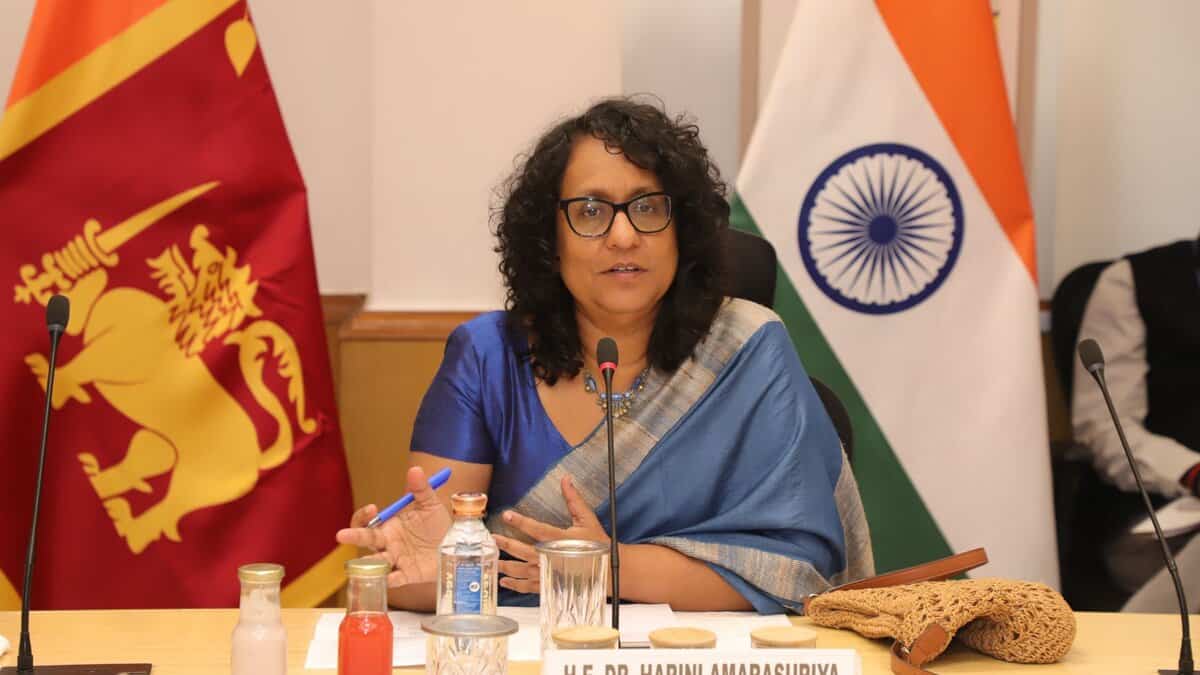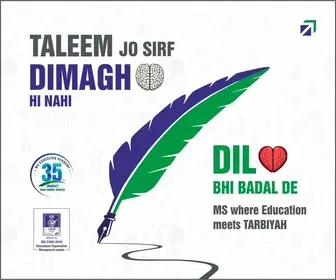
New Delhi: The India-Sri Lanka free trade agreement (FTA), signed way back in 1998, “needs to be upgraded”, Sri Lankan Prime Minister Harini Amarasuriya said on Friday.
In her address at NDTV World Summit here, she also said that as the island nation rebuilds, its partnership with India has “evolved into a forward-looking, multi-faceted collaboration in every conceivable area”.
Amarasuriya is on a three-day visit to India from October 16-18, her first official tour to the country after assuming office as the prime minister.
On Thursday, she visited Hindu College here, where she received a red-carpet welcome, as the college described her return to the campus as a “remarkable homecoming” of a “distinguished alumna”.
While addressing the summit, she recalled her arrival in Delhi in the early 1990s as a young Sri Lankan student, pursuing a Bachelor’s degree in sociology.
“Delhi.. a city that holds some of my formative memories. Standing here in Delhi, feels like coming full circle. Three decades ago, in the early 1990s, I was US journalists refuse to agree with defence reporting rules, leave Pentagon a student at Hindu College, a young student from Sri Lanka, navigating a world in flux. Delhi was a city of ideas then, as it is now, reflecting the enduring spirit of India through the centuries,” she said.
It was a period of change and economic reforms. “For many of us students, it was our first encounter with the concept of risk, in life, in economics, in politics and in identity”.
And, returning now, several decades later, “I see an India transformed, a confident, vibrant nation of 1.4 billion people charting its own path,” Amarasuriya said.
India today stands among the fastest-growing major economies in the world. Its digital revolution, green transition and infrastructure initiatives are laying the foundation of Viksit Bharat, a vision of a developed and prosperous nation, she said.
“India’s journey offers valuable lessons for developing countries, including my own,” the Lankan PM said.
The members in the audience included many word leaders from different fields.
“Today as Sri Lanka rebuilds, our partnership with India has evolved into a forward-looking, multi-faceted collaboration in every conceivable area, from development cooperation, training and capacity building, connectivity, including grid connectivity, energy security, digitalisation, education and technology, trade and investment, defence, tourism, culture and importantly people-to-people connectivity,” she said.
Steering change in uncertain times requires courage to collaborate, the humility to learn and turning solidarity into shared strengths, Amarasuriya asserted.
She also spoke of the India-Sri Lanka free trade agreement signed in 1998.
“Of course, the India-Sri Lanka free trade agreement (FTA), first for both our countries, signed way back in 1998, needs to be upgraded,” the Lankan PM said.
It will be mutually beneficial to explore how Sri Lanka can integrate more fully into India’s manufacturing and service sectors’ value chain, she said.
The theme of this summit, ‘Risk, Resolve, Renewal’, reflects the reality of the current era, the Lankan leader said.
“We live in a time when change no longer moves in predictable cycles; instead, it arrives in shocks. A pandemic, a climate crisis, geopolitical shifts and rapid technological disruptions have together redefined what leadership demands. Uncertainty today is not episodic; it’s structural, touching not only economics and security but also trust values and the very meaning of progress,” she added.
Yet uncertainty also brings opportunities. It compels one to rethink, to innovate, to reimagine, to adopt and to reimagine new possibilities, she said.
Amarasuriya underlined that risk is often portrayed as peril, sometimes mistaken for recklessness. However, risk is also the first step toward renewal and progress.
“Without taking risks, growth and change remain impossible. At the same time as leaders, we must remember that risk may be experienced differently by different groups of people; so ensuring that the vulnerable and the marginalised are protected at all times is also critical. And, we must refrain from romanticising risks as if it is the only impetus for change as well,” the Lankan PM added.
Sri Lanka’s path has been challenging, and the past few years have been of “fragility and fortitude”, she said.
She also referred to the Aragalaya protests, saying they shaped public discourse and political change.
These protests had erupted in early 2022 in response to the economic hardships most Sri Lankans were facing.
“Sri Lankans mistrusted the political establishment, but not democracy itself, the Lankan PM said, adding that the 2024 elections illustrate the enduring impact of the Aragalaya.
The Colombo-centric westernised elite set up was changed to a broader coalition of “non-elite social forces,” she said.
During her address, she also said India is Sri Lanka’s largest trading partner, largest source of tourism and a leading investor.
“Sri Lanka seeks to develop a maritime hub for the Indian Ocean Region, offering a cost-efficient gateway for global trade, through our deep waters and ports along the east-west shipping lanes,” she added.
The Lankan PM further said the “Indian Ocean security is a shared concern for both our countries, underscoring the importance of continued collaboration in maritime security and regional cooperation and energy security”.


